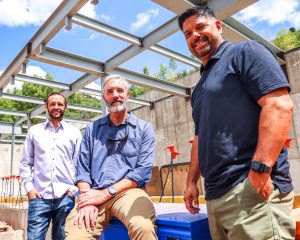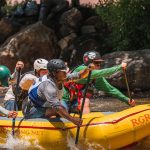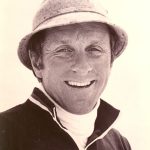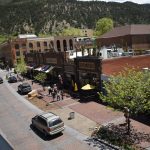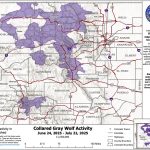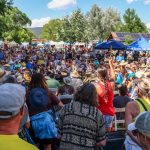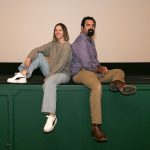Remembering Steve Rieschl: Vail’s ski touring legend was known for his investment in friendships and faith
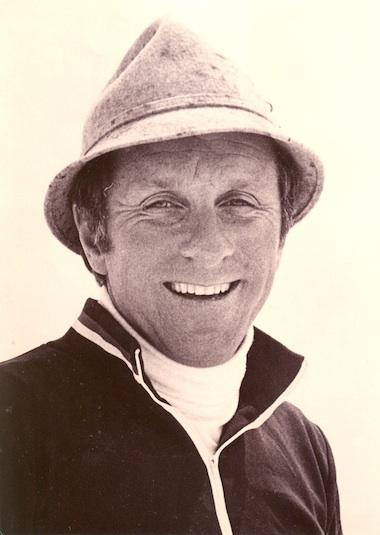
Colorado Snowsports Museum/Courtesy photo
Steve Rieschl’s life was defined by two passions.
“He loved turning people onto skiing,” said longtime friend Gene Dayton. “And the Lord.”
Rieschl, known locally for starting the country’s first commercial ski touring school in Vail in 1969, passed away on April 26. Throughout his adventure-filled, relationship-rich, 87-year life, he achieved notoriety in communities across the state — largely for his athletic accomplishments and contributions to the ski industry. But he made his biggest impact when he gave those pursuits up for a different calling.
“How did Steve Rieschl, a man who was an Olympian, a captain of the FIS (world championship) team — he had trophies that would fill this entire stage — how did he go from fame and someone who was so accomplished, to someone who was sold out for Jesus Christ?” asked Gerry Schnackenberg during a celebration of life for the Colorado Ski Hall of Famer on June 14 at ClearView Community Church in Buena Vista.
Schnackenberg — who was coached by Rieschl in middle school and is the nephew of fellow ski legend Rudi Schnackenberg — pointed to the answer, reading from Rieschl’s favorite book:
“But whatever were gains to me I now consider loss for the sake of Christ,” he stated, reading from Philippians 3. “What is more, I consider everything a loss because of the surpassing worth of knowing Christ Jesus my Lord.”
Ski touring savant
Growing up in Robbinsdale, Minnesota, Rieschl learned to ski from his father at 3. He traveled to Steamboat Springs for his first national event a decade later and was a ski jumping junior national champion as a senior.
The Midwesterner earned a full-ride scholarship to Western State College in Gunnison, where he trained under legendary Olympic coach Sven Wiik. A year after his 1959 graduation, Rieschl represented the U.S. as a ski jumper at the Squaw Valley Winter Olympics.
In 1962, he captained the U.S. Nordic Team at the world championships in Poland, an honor which — in addition to coming within two meters of the hill record on the iconic Holmenkollen jump in Oslo — stands as a career highlight.
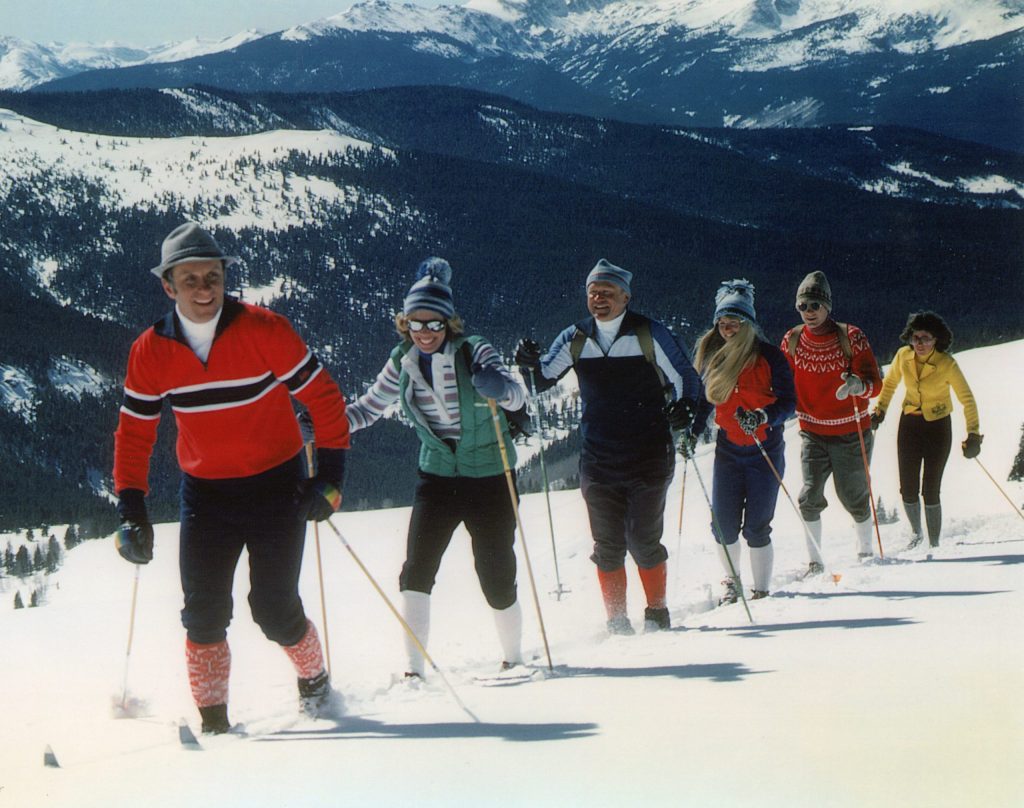
Rieschl later moved to Aspen, where he taught physical education and served as athletic director, started the city’s first summer recreation program and worked as a member of Aspen’s Professional Ski Patrol. He moved to Steamboat Springs and eventually Frisco, where he was named Summit County ‘Man of the Year’ in 1966 after launching a cross-country and ski jumping program at the high school.
That was the year Dayton, the patriarch of Summit County’s first family of Nordic skiing, arrived in Colorado, hoping to start a school for people with disabilities. Dayton showed up at the first Professional Ski Instructors of America clinic that winter and met Rieschl for the first time.
“He took me aside and taught me the basics,” Dayton said. “He wanted to hire me to be part of his ski touring school in Vail.”
By 1969, Rieschl had started the first commercial ski touring school in the United States in Vail.
“When I first got here,” Rieschl told the Vail Trail in 1974, “Not one ski shop carried touring skis. They acted as though they never heard of the sport.”
“It was a battle the first couple of years,” he continued. “Instructors from the ski school would kid me and some of Vail’s top management people gave me a hard time. But my touring school caught on and now many of the skeptics show up for lessons and use touring skis on their day off.”
In just under a decade, Rieschl grew the school from one instructor and roughly 47 students to 14 teachers and 3,000 students. He wrote “Steve Rieschl’s Ski Touring for the Fun of It,” as well as a weekly ski touring column. Rieschl also set up the NASTAR touring program and was one of the founders of the nation’s first Nordic certification programs through the Rocky Mountain Division of the U.S. Ski Association. Later, he became director of ski touring for Elan skis in North America.
His desire to expose everyone to on-snow outdoor activities manifested itself in multi-day ski tours. In February 1970, he set out with a dozen other men on a 75-mile, four-day ski touring trek from Vail to Aspen via the Continental Divide, which became the basic route for the 10th Mountain Hut system.
The crew, which included Tony Tafel, Karl Hochtl, Skip Walker and Dale McCall (executive director of Vail Resorts), spent two of the nights camping in the snow, “pitching tents over lodgepole pines and digging snow caves to stay warm,” according to the Vail Trail. The trip catalyzed Rieschl’s annual ‘Spring Fling,’ another four-day tour around Summit County. He also organized an annual ‘Town Ski Tour,’ a touring trip for Vail Village employees over Shrine Pass to Red Cliff. The cost of the trip in 1977 was $3.
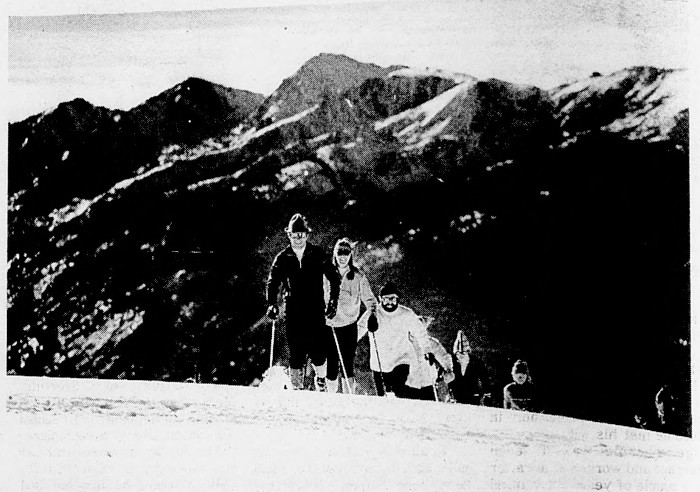
Dayton recalled one close call during a spring tour from Vail Pass to Minturn.
“We were crossing some steep areas. Steve skied down this one slope beautifully,” said Dayton, who was waiting at the top. “They had chopped that up pretty good. I took a few yards step to the left and the whole thing slid.”
Fortunately, Rieschl was able to step into the trees and avoid getting buried. Dayton said Rieschl was always safety-first and detail-minded; he even made sure his ski pole tips faced the trunk when loaded into his car. But what set him apart was his prowess on the piste and through powder.
“He could ski deep powder on skinny skis,” said Dayton, whose only close comparison from a skill standpoint was his son, Matt — a 2002 Olympian in Nordic combined.
“He made them perform just beautifully. Like no other, really,” Dayton said of Rieschl. “He could ski like nobody I’ve ever seen on cross-country skis.”
On April 28, 1978, the Vail Trail reported that Rieschl was ending his tenure with Vail Associates to “open a Christian, non-profit ski touring and summer sports ranch on 160 acres of land located at the foot of Crested Butte Mountain.”
The career change seemed sudden, but the wheels were set in motion by a phone call that occurred five years earlier.
A leap of faith
Gerry Schnackenberg first met Rieschl in the early ’60s when the skier became his junior high coach. Rieschl had moved to Steamboat Springs to work with jumpers at the winter sports club and help Schnackenberg’s uncle manage Howelsen Hill. When Schnackenberg went on to high school and college, he lost touch with his former coach. Then, in 1973, he got a call from Rieschl, who was living in Belgrade, Montana, at the time.
“I didn’t know him that well,” Schnackenberg said. “I didn’t really know him as an adult.”
Schnackenberg went up to see Rieschl for one night.
“There was a hunger in him,” Schnackenberg said.
“Steve said, ‘I want you to know that when I was working with your father, there was something about his life that was very attractive to me. I think it had something to do with his faith.'”
While Rieschl had grown up in the Catholic church, nothing religious resonated. That night, Schnackenberg presented the gospel to him. A few years later, Rieschl told his former athlete his vision for Ambush Ministries.
Schnackenberg said Rieschl believed his purpose was to utilize his skiing skills and outdoor recreation experience to bring people into the wilderness, foster relationships and ultimately, introduce them to Christ. Reflecting on his break from Vail Resorts to embark on this new adventure, Schnackenberg said he could see Philippians 3:7 come alive in Rieschl.
“He was willing to just let go of all that other stuff,” Schnackenberg stated. “Not that he didn’t enjoy it and he didn’t say it was bad — he just let go of it.”
Originally named Ambush Ranch, Rieschl’s new venture offered cross-country ski instruction, guide service, rentals, a ski shop and a maintained track system. Gradually, his passion for people spurred him to turn Ambush Ranch into Ambush Ministries.
“Steve’s mission for Ambush Ranch was to combine his two favorite activities — sharing the glory of God’s creation with others and introducing people to Jesus — and at that time, I was one of those people,” Brian Trout said at the celebration of life service. Trout was a 23-year-old instructor Rieschl hired when he launched the Ranch in 1978. While he’d rejected religion as a youngster, by the summer of 1979, Rieschl had led him to a new faith.
“For the next 44 years, right up to the end, Steve was faithful in carrying out that mission,” Trout continued. “People influenced by him span the globe.”
Eventually, Rieschl moved Ambush Ministries to Nathrop, where he built his cabin on site. The ministry itself centered around outdoor activities during the day and shared meals and testimonies around Rieschl’s enormous table in the evenings.
“I think he was most interested in discipleship. He wanted to help people with their walk with God and each other,” said Vail’s Mark Stevens, who met Rieschl through cardiologist Larry Gaul. One weekend, Gaul had to leave town; he asked Stevens to keep an eye on Rieschl, who was in the hospital.
“I just loved getting to know him and talk to him about ski jumping, Nordic combined, the Olympics and Western State,” said Stevens, who works as an internal medicine doctor at Colorado Mountain Medical. “And just his Christian faith. I just loved it.”
Stevens remembered hearing stories of Rieschl elegantly flying past ski school attendees at Vail Mountain with his three-pin bindings and free-heel touring skis.
“He was kind of a fixture on the mountain,” Stevens said.
Ambush Ministries also put on an annual prayer breakfast between 2002 and 2008, bringing in well-known speakers for Young Life attendees. One was Chris Teipel’s son. Teipel wasn’t a Christian at the time. After he converted, the recovering alcoholic became close with Rieschl through a men’s bible study breakfast held at ClearView Community Church in Buena Vista in 2004. The pair would hike up Barbara Whipple Trail for 45 minutes each week after breakfast.
“I got to ask him all types of questions and he was great at not answering anything,” Teipel said. “He would just ask a question in return.”
Teipel said Rieschl’s favorite question was “Why Jesus?” but he never forced his faith onto others.
“Whether they went to church or not wasn’t that important to him,” Teipel explained. “He just wanted to walk with people and build relationships. That was his deal.”
Rieschl invited Teipel to join his board in 2010. Six years later, he took over as president. When Rieschl sold the Nathrop property and bought a house in Cheyenne, he invested the profits to keep the ministry afloat. A couple of years ago, Teipel bought the house, where he currently leads Ambush Ministry.
“I do ministry differently than Steve did,” Teipel said. “I still carry the heart of relationships that he had, but I’m a clinical mental health counselor, so my relationships are very different.”
The ultimate prize
The 1978 Ambush Ranch guestbook begins with the words, “Life is a great investment, and no man lives in vain who guards 100 friendships as a miser guards his gain.”
“If you weren’t a friend of Steve’s, it’s because you walked away,” said Dottie Urban at the memorial service last month. Urban prepared and served meals for Rieschl at several of his work weeks.
“(Steve) loved everybody,” she said.
Connie Trout, who often visited Rieschl during his final years at a Fort Collins-area assisted living, called Steve “a bridge builder.”
“He would introduce us to residents and help us find common ground, whether it was teaching, knee replacements or cattle ranching,” she said. Rieschl received letters daily, even later in life. He always wrote back, dictating to Trout, who signed off each one with “The old ski jumper, Steve.”
Stevens described Rieschl as “well-liked, well-respected and well-connected.” He was even-tempered, neither gregarious nor isolated.
“He was comfortable to be around, but also asked direct questions,” he said.
During his later years, Stevens would pick up Rieschl at his Front Range home and drive him up to the Holy Cross Wilderness to see the fall foliage.
“He really encouraged us to silence our busy and noisy minds and listen to God,” Stevens said.
“He helped a lot of guys get their lives straightened out, I’ll tell you that,” said Dayton, a lifelong Christian who enjoyed regular faith talks with Rieschl. “I was re-baptized after I met him, and I’m sure his influence had something to do with it. He was a good friend and he supported me.”
Dayton was inspired to start the Breck Nordic Center after working with Rieschl in Vail. He was the first Telemark Ski School Director at Telemark and founded the Breckenridge Outdoor Education Center. Now in its 50th year, The Breckenridge Outdoor Education Center is one of the largest providers of year-round outdoor recreation for people with disabilities. Both Dayton, now 82, and Rieschl have trails named in their honor at the Frisco Nordic Center.
“Had I not run into him when I did, my life would have been different, that’s for sure,” Dayton said. Ted Shallbetter, who met Rieschl at Robbinsdale High School and followed him to Western State to ski, shared a similar sentiment.
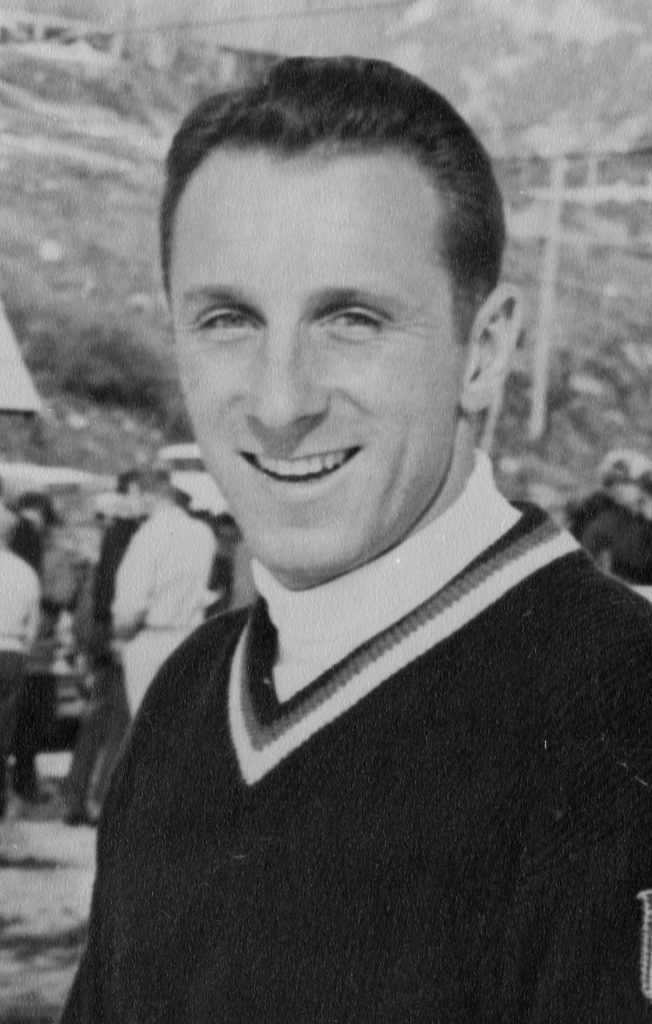
“Without him, I wouldn’t be here,” he said.
“I wouldn’t have gone to college, I wouldn’t have been a skier … all the things that I did, I have to give him credit for so much of it.” In 1961, Shallbetter spent five months touring Europe with Steve on a motorcycle they bought in a London junkyard. At the memorial service, he shared countless stories from the pair’s epic saga, including surviving a high-speed crash.
“God was such a big part of our life,” Shallbetter said. “As we traveled, we kept that in mind every day.”
On the second floor of Eagle’s Nest, a photo shows a lineup of Nordic skiers heading across a Vail Mountain Ridge; Rieschl is donning a traditional wool German yodeling cap. Though he was famous enough for his legacy to live on in pictures, signs and halls of fame, it was the one-on-one moments — and eternal mindset — Rieschl will be most remembered for.
“Actions speak louder than words,” Teipel said. “Steve was that guy for me. His actions showed me his faith.”
This story is from VailDaily.com.
From pickup trucks to luxury contracts: Incoming executives aim to continue Roaring Fork Valley construction legacy
Pickup trucks were a crucial tool for young contractors in the Roaring Fork Valley in the 1980s.

Support Local Journalism

Support Local Journalism
Readers around Glenwood Springs and Garfield County make the Post Independent’s work possible. Your financial contribution supports our efforts to deliver quality, locally relevant journalism.
Now more than ever, your support is critical to help us keep our community informed about the evolving coronavirus pandemic and the impact it is having locally. Every contribution, however large or small, will make a difference.
Each donation will be used exclusively for the development and creation of increased news coverage.
